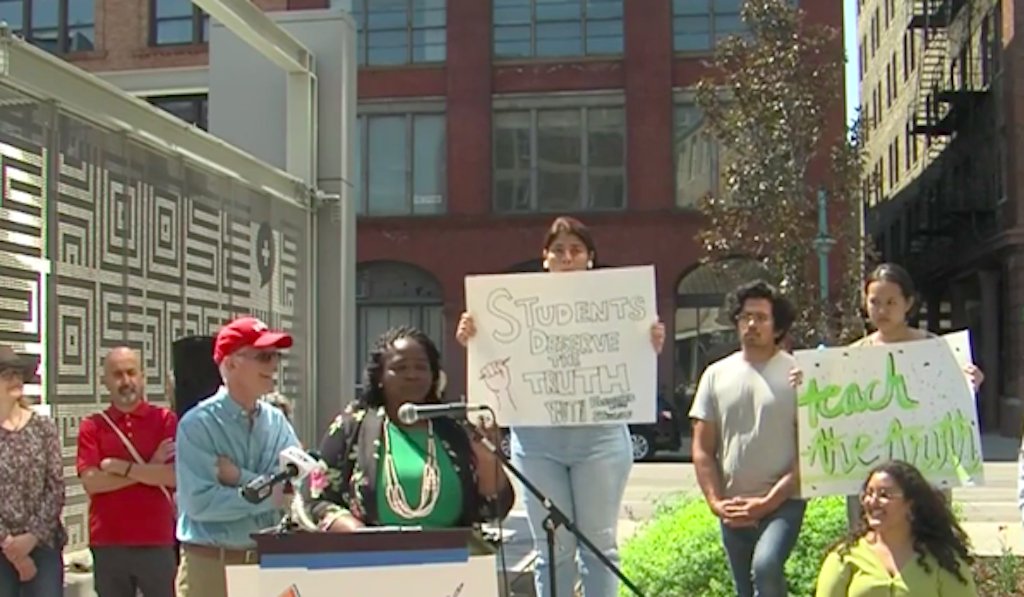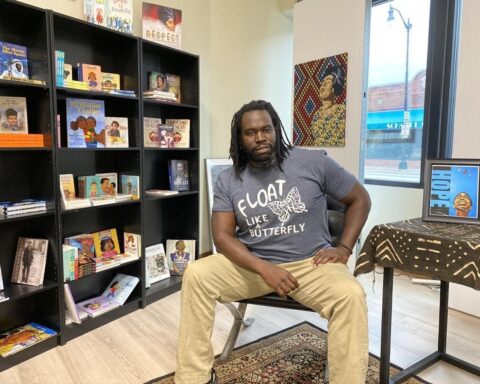Across the nation, teachers are organizing a “National Day of Action to Teach the Truth.”
A year after a historic social justice movement, several states, including Wisconsin, are moving to define what race concepts schools can teach. However, local teachers think that’s a mistake.
“Today, we say ‘no’ to bullying, ‘no’ to censorship. We say ‘yes’ to academic freedom, and we say ‘yes’ to teaching the truth,” said Bob Peterson, president of the Milwaukee Public School Board.
On Saturday, June 12, teachers, students and school board members in the Milwaukee area held a news conference to oppose legislation they say would hurt students and schools. They held the news conference on East Buffalo St. between Water and Broadway streets, which is the site of the Sept. 8, 1861 lynching of George Marshall Clark, a Black man from Milwaukee.
“We are here today to defend the rights of teachers to teach and students to learn the true history of our nation,” Peterson said.
“History is what makes each and every one of us. It’s a part of our identity. It’s where we come from. So learning about that history is going to shape who we become,” said Rebeca Acosta, a high school junior from Milwaukee Public Schools.
Last week, State Republican lawmakers introduced new bills seeking to bar schools from teaching ideas linked to Critical Race Theory, the decades-old idea that racism is inherently built into society.
“We need to teach students the basics to be proficient, not teach divisive concepts,” said Rep. Rick Gundrum, R-Slinger, during a news conference on June 3.
The bills don’t directly mention the concept of Critical Race Theory, but they prohibit teaching that one race or sex is superior to another.
Another bill would bar states and cities from training employees on Critical Race Theory ideas.
“Our students want to talk about racial tensions that they see, racial discrimination that they experience, and they want to be critical thinkers,” said Francisca Meráz, an ESL teacher from South Division High School.
Meráz said talking about race and sex is crucial in a district as diverse as Milwaukee Public Schools.
“If I were to say, ‘No, I can’t talk about that,’ then (my students) don’t trust me anymore,” she said. “They’ll feel like their questions don’t matter. They’ll feel like their experiences — their actual lived experiences — don’t matter, and I lose them.”
Under the GOP bills, schools and colleges that continue teach these ideas could risk losing state funding. Parents could also sue their school boards.
“These bills give the parents the tools to hold their school boards accountable,” said Rep. Chuck Wichgers, R-Muskego.




